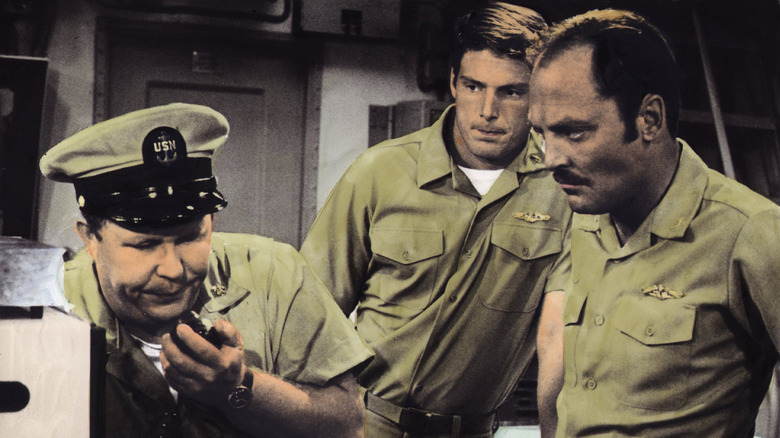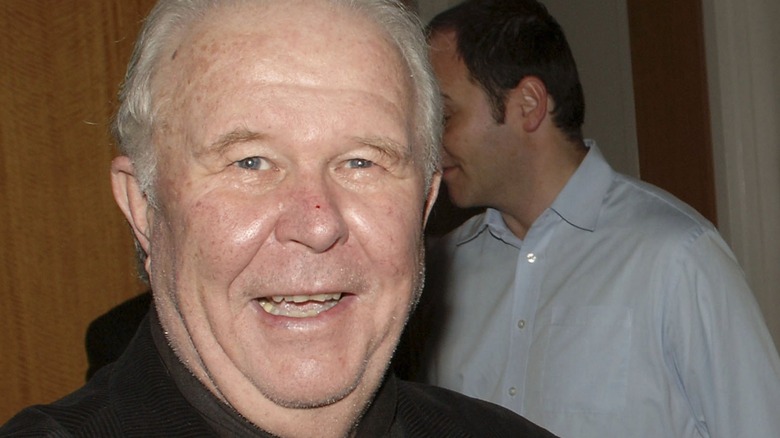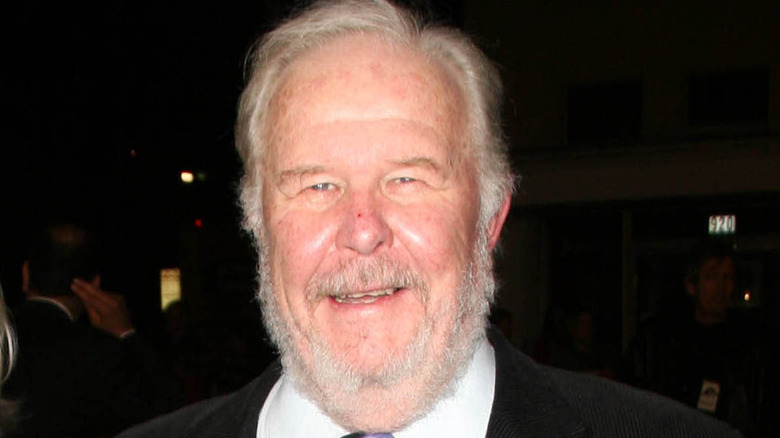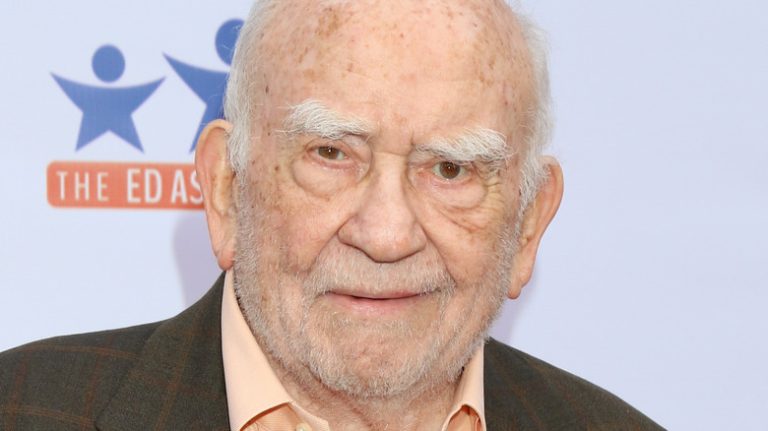Ned Beatty, whose acting career extended across both stage and screen for over sixty years, passed away on June 13th at his residence in Los Angeles, California, at the age of 83. Although his family has opted to keep the specifics of his passing private, his manager, Deborah Miller, conveyed that “Ned passed away from natural causes Sunday morning, surrounded by his family and loved ones” (via Express). Beatty is survived by his wife Sandra Johnson, whom he wed in 1999, his eight children, and several grandchildren. Miller remarked, “Ned was an iconic, legendary talent, as well as a dear friend, and he will be missed by us all.”
Fans and entertainment elites reacted to the news of Beatty’s death with sorrow and admiration. “Toy Story 3” director Lee Unkrich, who cast Beatty as the voice of the villainous bear Lotso, tweeted, “Just heard that Ned Beatty passed away in his sleep. It was a joy and an incredible honor to work with him. Thanks, Ned, for bringing Lotso to life — both his good side and his not-so-good side. We’ll miss you.”
Author Don Winslow added, “Ned Beatty was an amazing actor. Good in everything he was ever in. RIP,” while Joe Hill echoed the sentiments of many, writing, “Ned Beatty was an instant upgrade to every single film he was ever in.”
Ned Beatty had immense versatility as an actor

Ned Beatty was born on July 6, 1937, in Louisville, Kentucky, but grew up in Lexington, where he attended the Protestant Disciples of Christ Christian Church. It was there, intriguingly, that he discovered the power of human emotion. In 1992, he mentioned about the church, “It was the theater I attended as a kid. It was where people got down to their truest emotions and talked about things they didn’t talk about in everyday life. … The preaching was very often theatrical” (via ABC News).
His career as a performer began early, at age 10, singing in gospel quartets and a barbershop quartet (via Extra). His acting career took off at the Barter Theater in Abingdon, Virginia, where he performed for a decade before moving to bigger stages in Pennsylvania, Texas, and finally the prestigious Arena Stage Company in Washington, D.C., where he stayed for eight years.
Beatty’s on-screen debut came in 1972, with “Deliverance,” where he portrayed Bobby Trippe, the cheerful, laid-back member of an all-male river-boating party who ends up being stripped and brutalized by assailants in a harrowing scene. This role proved to be a turning point in Beatty’s career, leading him to star in numerous supporting roles in both films and TV series, including playing Lex Luther’s bumbling assistant Otis in the blockbuster hits Superman and Superman II (via Forbes).
What does “natural causes” really mean?

As Ned Beatty’s manager, Deborah Miller, confirmed, the actor passed away “from natural causes” (via Express). But what does that entail, precisely? The term is broad and can encompass any internal ailment that can result in death, including disease, as opposed to external factors like injury or accident.
Dr. Patricia Allenby, director of autopsy services at the Ohio State University Wexner Medical Center, explained to Live Science, stating, “It just means there was nothing non-natural that happened in [the patient’s] cause of death.” Thus, someone who dies from heart disease or even cancer could have “natural causes” listed as the manner of death on the death certificate, while someone who died in a car accident would not.
Dr. David R. Fowler, president of the National Association of Medical Examiners, explained, telling CNN, “When a medical examiner fills out a death certificate, it’s their medical opinion based on all their experience and training that this is what happening.” He continued, stating, “You’re rather like a judge. You weigh the evidence, and based on the predominance of evidence you come to a decision that I think this is what caused the problem.”



